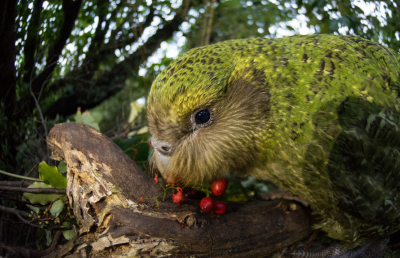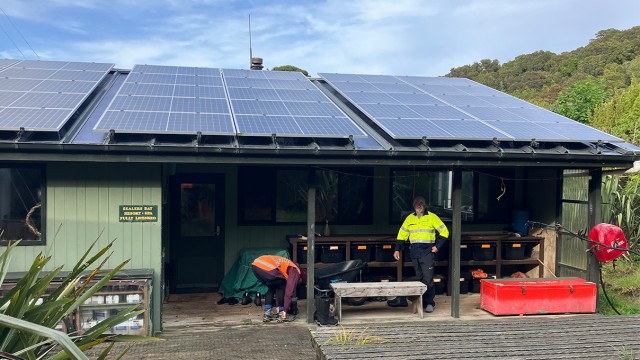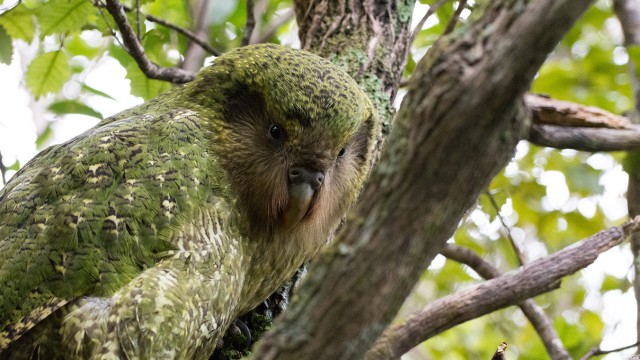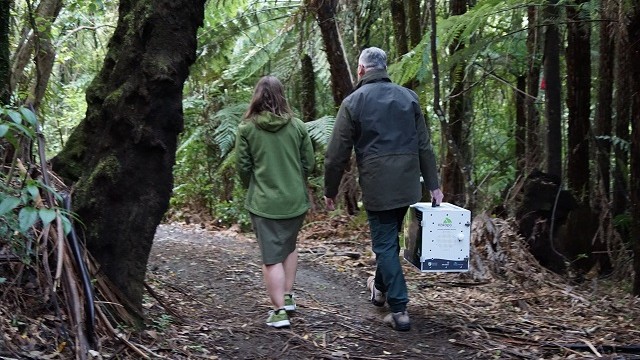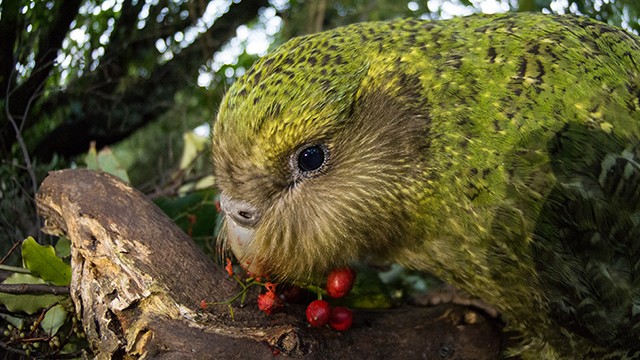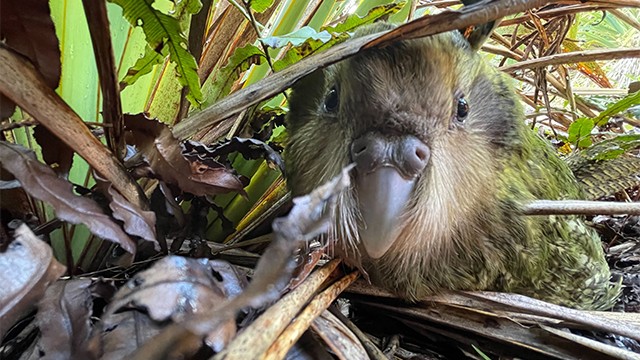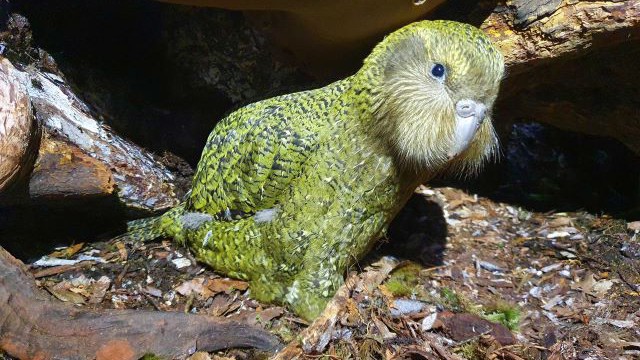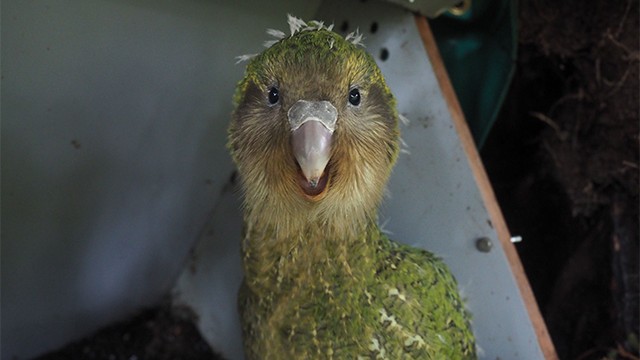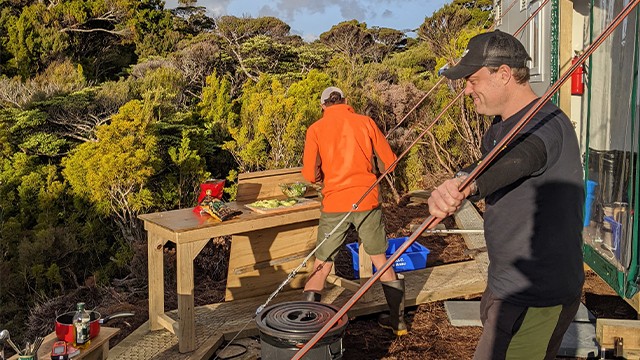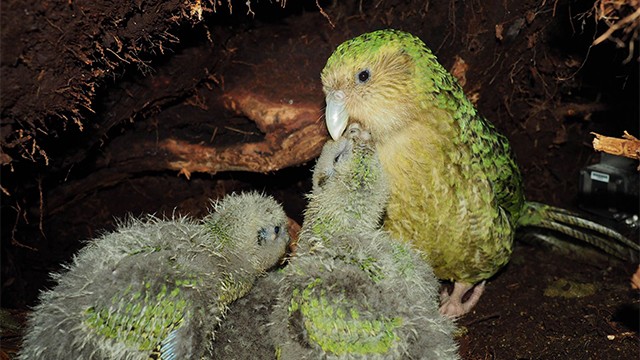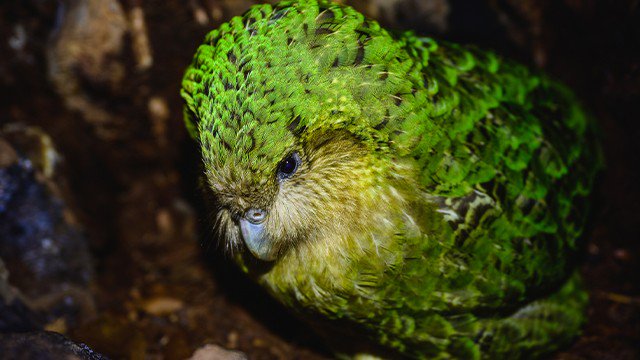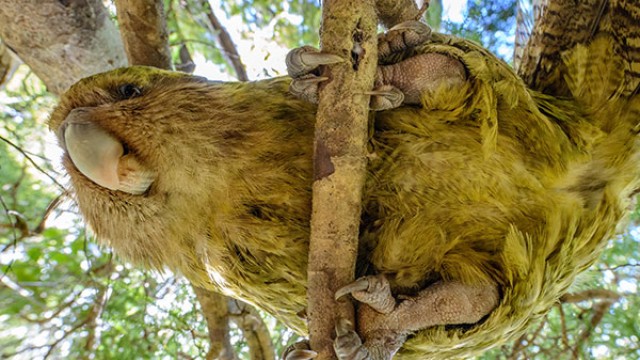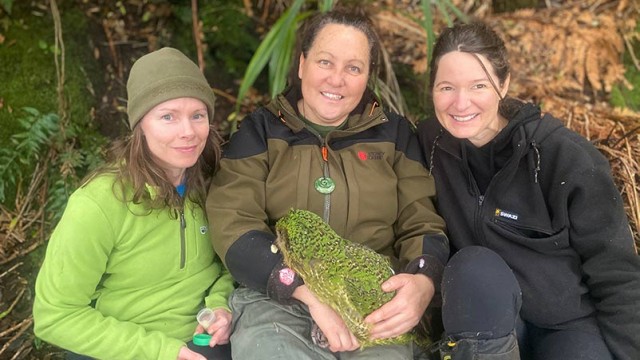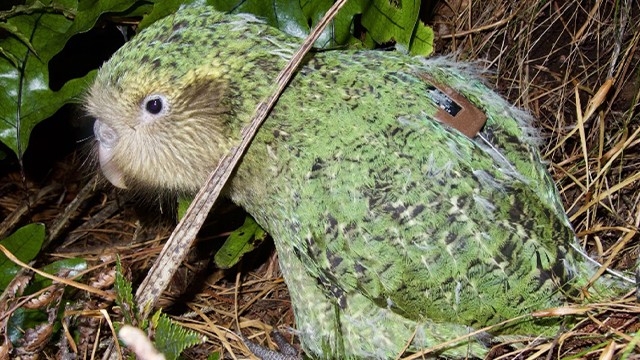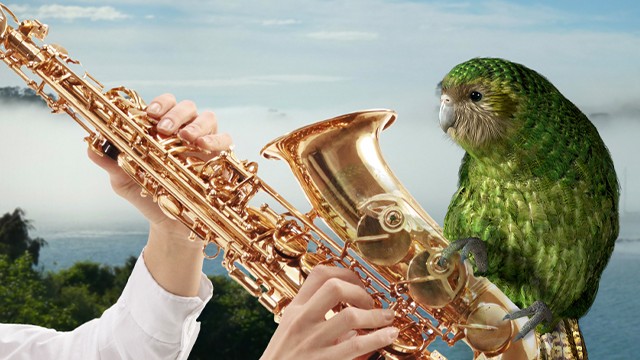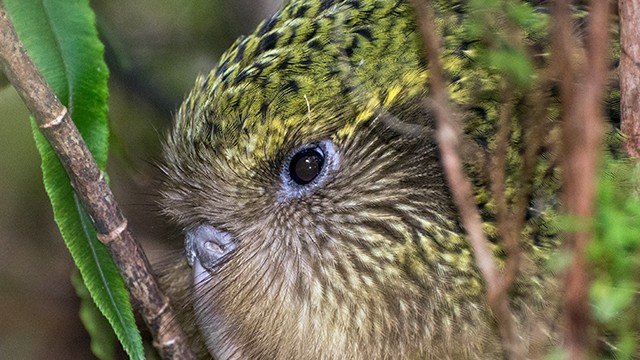Kākāpō Recovery Programme
Here at Meridian, we’re helping the native kākāpō species recover.
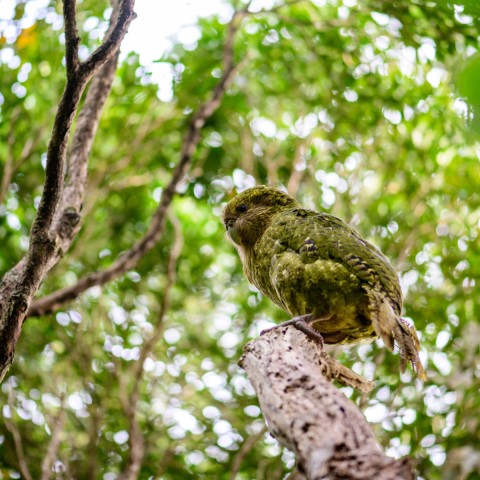
Here at Meridian, we’re helping the native kākāpō species recover.
Kākāpō used to be widespread on mainland New Zealand but through the introduction of predators, hunting and land clearance, their numbers drastically dropped and the species seemed doomed to extinction. That was until the exhaustive conservation efforts by the Department of Conservation in the 1980s, followed by the formation of the Kākāpō Recovery Programme in 1996. KRP hatched a bold new plan to create predator-free islands, with increased funding, staffing, and an advisory group.
Kākāpō currently breed on two main predator-free islands - Whenua Hou (Codfish Island) west of Rakiura (Stewart Island) and Pukenui (Anchor Island) in Dusky Sound, Fiordland.
In a conservation milestone, ten kākāpō were released at Sanctuary Mountain Maungatautari in 2023. This also marked a new phase for the programme and is an important step towards the long-term goal of returning kākāpō across Aotearoa.
When the Kākāpō Recovery Programme was established, there were only 51 known birds. After bumper breeding seasons in 2019 and 2022, the population reached a high of 252 and as at September 2024, sits at 244.
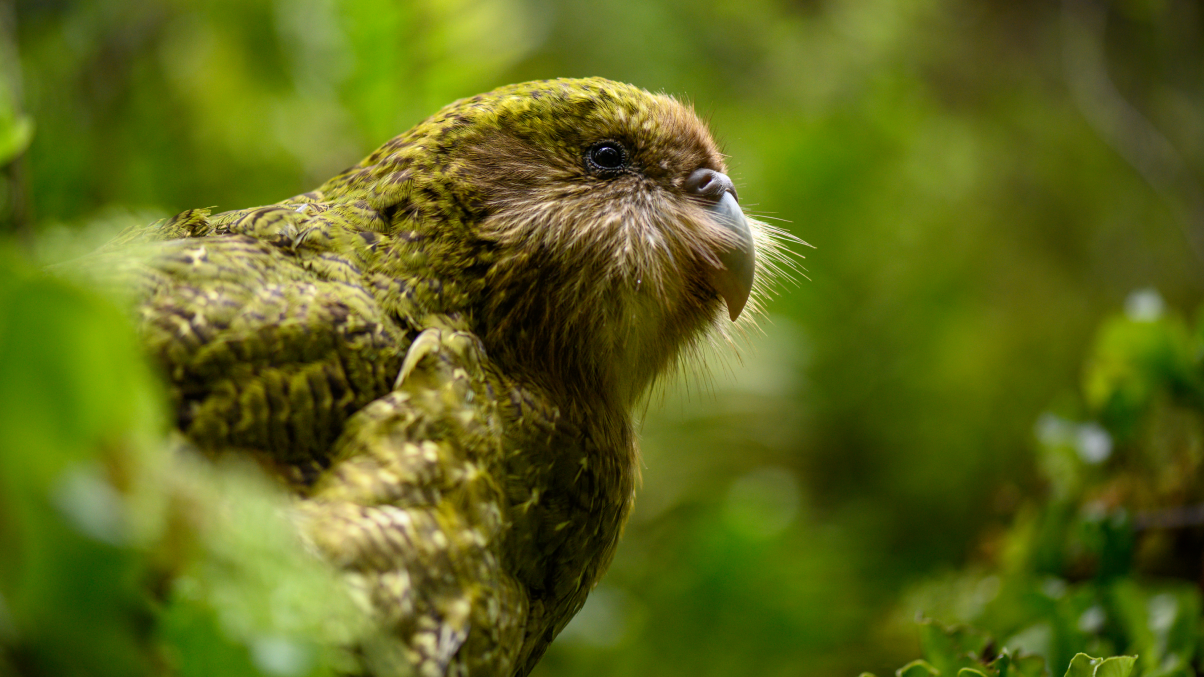
Image: Species Strigops habroptilus, Kākāpō, or night parrot, taken by Jake Osborne, Kākāpō Ranger.
“Kākāpō are treasured by Ngāi Tahu as a taonga species, they are part of our tribal identity and it’s wonderful to see that Meridian values them too,” says Tāne Davis, the Ngāi Tahu appointee to the Kākāpō Recovery Group.
“The Department of Conservation’s Kākāpō Recovery Programme combines the efforts of rangers, scientists, volunteers and our partners to protect the kākāpō.” says Deidre Vercoe, DOC Operations Manager for the Kākāpō Recovery Programme.
“The birds inspire real passion from everyone involved in the work. It’s amazing to see what can be achieved working together to protect and grow the kākāpō population.”
It doesn’t stop there though. We put the mahi in alongside the kākāpō rangers on predator free islands to ensure they have fit-for-purpose power systems, which are powered primarily by the sun. This means incubators, brooders and feed-out gear can run efficiently and give the team the best chance at successfully managing breeding seasons.
"Meridian is very proud to have been involved with DOC and Ngāi Tahu since 2016 on the Kākāpō Recovery Programme. We're committed to helping protect our natural environment and we are proud to be raising awareness of the plight of kākāpō.
Through our combined efforts, it's great to see the hard work paying off and the kākāpō population reaching numbers not seen in decades." Neal Barclay - Meridian CEO.
